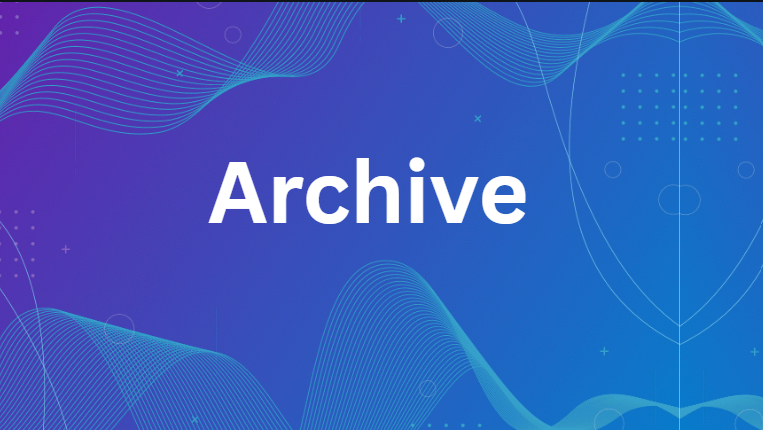Keeping information safe is important in today’s world. We create and collect pictures, videos, documents, art, and many memories every day. If we do not store them in the right way, they may be lost forever. That is why archives exist. Archives help people save information for the future.
This guide explains what an archive is, how archives work, and why they are useful for everyone.
1. What Is an Archive?
An archive is a place where important information or records are stored for a long time. The information kept in an archive can be from the past or the present. It must be safe, organized, and easy to find later.
Archives store:
- Old newspapers
- Government records
- Historical letters
- Family documents
- Photos and audio recordings
- Digital data such as emails or websites
Archives make sure that history is not forgotten.
2. Why Archives Are Important
Archives protect knowledge. They help us remember how people lived and what happened in the world before now. Without archives, future generations may not understand their culture.
Here are some key reasons why archives matter:
- They keep history safe
- They help solve legal issues with old records
- They support education and research
- They protect personal and family memories
- They show how society has changed over time
Archives are like time travel. They help us learn from the past to build a better future.
3. Types of Archives
There are many kinds of archives. Each one holds a different type of information.
3.1 Government Archives
Governments keep birth records, passports, taxes, and public documents. They prove who we are and what we own.
3.2 Library Archives
Libraries keep rare books, old magazines, and maps that are not printed anymore.
3.3 Museum Archives
Museums store art, pictures, and objects from different times in history.
3.4 Personal Archives
Everyone has a personal archive such as:
- School certificates
- Photos from childhood
- Family video recordings
These memories are valuable for our future.
3.5 Digital Archives
Today, more information is saved digitally. Digital archives include:
- Computer files
- Website backups
- Emails and digital photos
These must be protected from hacking and technical loss.
4. How Archives Work
Archives follow a system so nothing gets lost. Archivists (people who manage archives) do these jobs:
- Collect information
- Check and clean the items
- Organize them with labels or codes
- Store them in safe boxes or digital systems
- Help people find information when needed
They must protect items from heat, water, insects, and damage.
Digital archives need:
- Backup systems
- Strong passwords
- Updated technology
- Regular scanning to stop data from getting corrupted
The goal is to make information last for many years.
5. Archive vs Backup
Many people think archives and backups are the same. They are not.
FeatureArchiveBackupPurposeLong-term storageShort-term recoveryTime useUsed rarelyUsed during problemsSpaceOrganized for historyStored for urgent needExampleOld family photosCopy of today’s work files
An archive protects history. A backup saves current work.
6. Popular Archive Tools and Software
These tools help people store digital information safely:
- Google Drive
- Dropbox
- OneDrive
- External hard drives
- Cloud storage services
For big organizations, professional systems like digital record management software are used.
7. Challenges Faced by Archives
Archives are very useful but face problems such as:
- Limited space for storage
- Damage due to weather or insects
- Technology changes very fast
- High cost of digital protection
Archivists always work to improve safety.
8. The Future of Archives
The future will be more digital. Artificial intelligence may help organize big collections. Cloud systems will keep huge amounts of files. People will be able to access history from anywhere in the world.
Digital archives will make learning faster and easier.
FAQs
Q1: Who can use archives?
Students, teachers, lawyers, historians, journalists, and even normal people who want to learn about the past.
Q2: Are archives free to use?
Some are free, especially public archives. Others may charge a small fee for special access.
Q3: What is the best way to archive personal data?
Use cloud storage and make backup copies on external drives. Organize files with names and folders.
Q4: How long does information stay in an archive?
It can remain for many years, even centuries, if stored properly.
Q5: Can digital archives be deleted?
Yes, they can be lost if not protected. That is why backups, strong security, and regular maintenance are important.
Final Words
An archive is more than a storage place. It is a treasure of knowledge and memories. Archives help protect information for future generations. Collecting and saving important data today ensures that tomorrow’s world can learn, understand, and grow.


